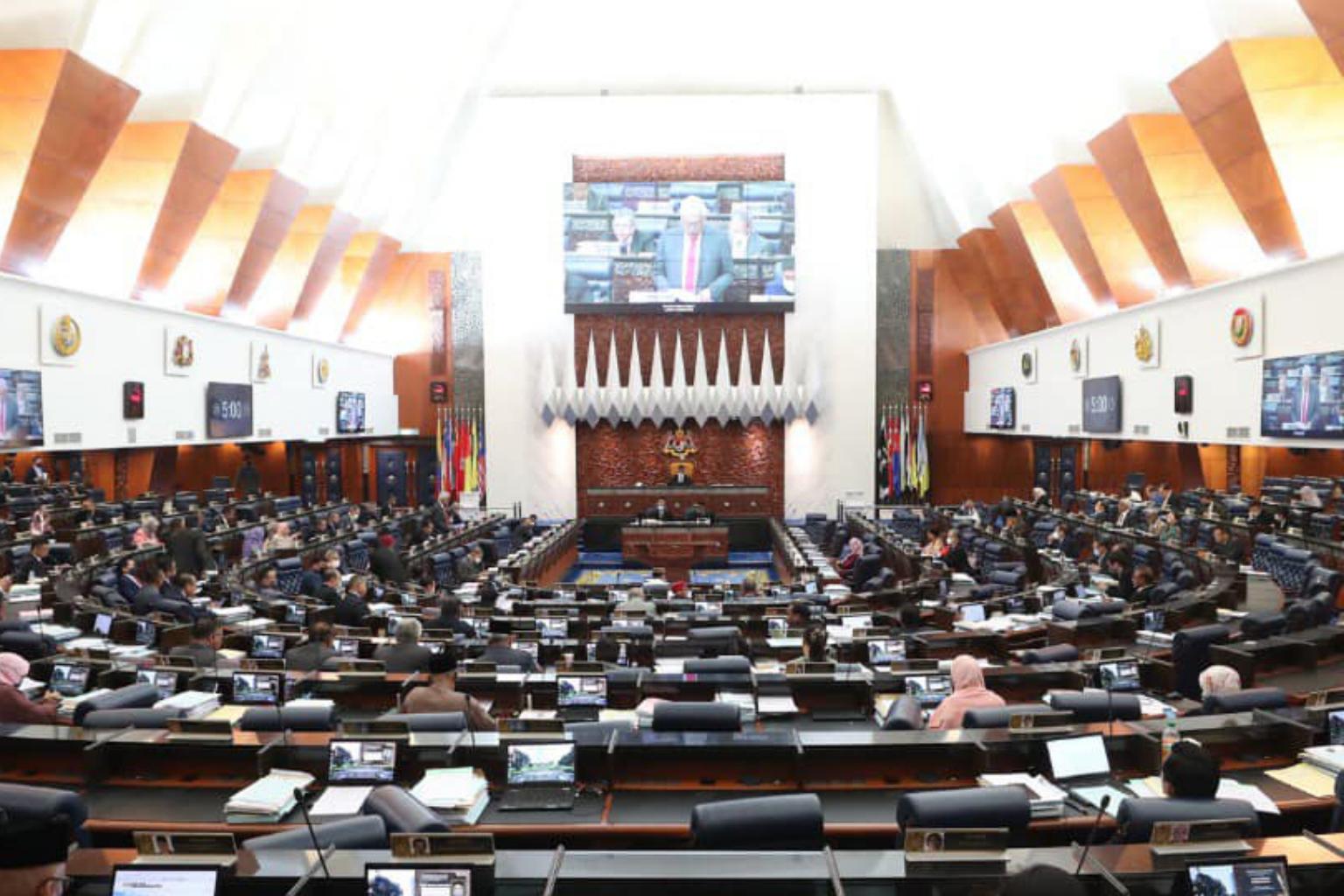ST Explains
Malaysia Parliament passes anti-party hopping law: What does it mean?
Sign up now: Get insights on the biggest stories in Malaysia

Malaysia's Parliament on July 28 passed a bipartisan Bill to curb defections by lawmakers.
PHOTO: PARLIMEN MALAYSIA/FACEBOOK
Follow topic:
KUALA LUMPUR - A law to prevent members of political parties from jumping ship in Malaysia, which has been in the works since September last year, has finally been passed in Parliament after several delays.
Here is a closer look at the landmark legislation to curb defections, a major cause of political instability in the country.
Why now?
The need for a law to stem party defections came into the spotlight in Malaysia following the collapse of the Pakatan Harapan (PH) government, led by Tun Dr Mahathir Mohamad, in 2020.
PH had assumed power for the first time at the 2018 general election, which ended Umno's six decades of one-party rule. But a mass defection from its ranks - the so-called Sheraton Move - led to its collapse, and precipitated a period of political instability that continues till today.
Defections and aisle-crossing remain prevalent, leaving the two subsequent governments - led by Tan Sri Muhyiddin Yassin and now, Datuk Seri Ismail Sabri Yaakob - with only a single-digit majority in Parliament.
The anti-party hopping law is a key condition of the confidence-and-supply agreement (CSA) signed between PH, now in opposition, and Prime Minister Ismail 's government in September last year.
The CSA provided Mr Ismail with the opposition's support to pass key legislation and, in return, he agreed to push for several crucial reforms, including the anti-party hopping measure.
A key clause states that Mr Ismail cannot dissolve Parliament before Sunday. But both sides say the expiry does not necessarily mean an immediate dissolution, as the CSA itself does not have an expiry date.
What was passed?
- An exception is now made to MPs' rights to freedom of association in order to prevent party defections. This is done by amending Article 10 of the federal constitution that gives citizens the right to freedom of association.
- A recall election can be held every time an MP switches parties, under a new Article 49A.
- An MP who resigns will no longer be barred from contesting elections for five years. This enables MPs to quit their parties to defend their seats on another ticket in a recall election.
- States will have the powers to amend their constitution in order to ban party hopping among state legislators.
The legislation gained passage via a series of constitutional amendments, instead of a new Parliamentary Act. Any changes to the constitution require a supermajority approval by Parliament, while an Act can be amended with a simple majority.
Who are exempted?
The law does not apply to:
- MPs who are sacked from their parties;
- En-bloc defections;
- Post-election coalition agreements between parties.
Will it prevent another Sheraton Move?
There were two types of defections that caused the PH government to collapse in 2020: the 10 MPs led by Parti Keadilan Rakyat's Azmin Ali who defected from PH, and Mr Muhyiddin's Parti Pribumi Bersatu Malaysia, which left PH en-bloc.
Under the new law, the actions of Datuk Seri Azmin and the MPs that followed him would have triggered elections in all of their constituencies.
However, Mr Muhyiddin's group would not be subject to a recall election as his party decided to leave PH en-bloc, not as individual MPs.
As the new law does not apply retrospectively, it will not impact the dozens of MPs who have switched political allegiances since 2020.
What happens next?
The law is expected to be passed next by the Senate. When that happens, the amendments can be gazetted and come into effect as early as September.
The law will likely be in force in time for Malaysia's next general election. The election must be held by September next year but many analysts expect it to be called this year.
Mr Ismail will be free to dissolve Parliament any time from next week. However, he said on Wednesday (July 27) that while the CSA would not be formally extended, it will still be in effect until he dissolves Parliament.
He added that more key legislative reforms are still being worked on by the government.

